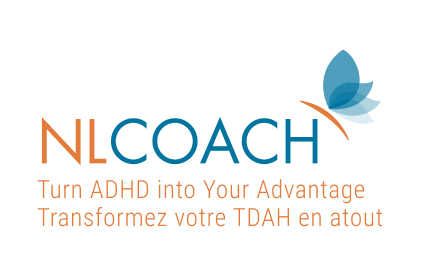Coaching Competencies
According to the International Coaching Federation
ADHD coaching has its foundations in the ICF Code of Ethics and its 11 Coaching Competencies as outlined hereafter:
A – BUILDING THE FOUNDATIONS
- Respect ethical guidelines and professional standards
- Establish the coaching contract
B – CO-CREATE THE RELATIONSHIP WITH THE CLIENT
- Build a climate based on trust and respect
- Establish the presence of the coach
C – COMMUNICATE EFFECTIVELY
- Active listening
- Powerful questioning
- Practice direct communication
D – FACILITATING LEARNING AND SUCCESS
- Broadening client awareness
- Designing actions
- Planning and setting goals
- Managing progress and accountability
In ADHD coaching, although we pay attention to the ICF code of ethics and the 11 core competency skills, the ADHD coach works differently because of his specific training to address the needs of the clients since ADHD brains process information differently from neurotypical ones (do not have ADHD). In other words, ADHD coaching is based on 3 main pillars:
1 – Coaching: ADHD coaching is client-centered, client-driven, and confidential. ADHD Coaches regard the client as an intact, creative, and resourceful person, and approach the coaching through an ADHD-informed lens. ADHD coaches facilitate the client’s actions toward self-awareness and the identification and achievement of the client’s self-identified goals, providing structure and accountability as needed.
2 – Skills: The ADHD coach and client collaborate to develop conscious awareness of the client’s strengths and challenges. Leveraging that awareness, the coach supports the client in creating systems and strategies tailored to the client’s needs and to strengthen the client’s ability to manage the pragmatic aspects of life.
3 – Education: The coach helps to educate the clients about ADHD and how it affects them across a lifetime. The coach may also provide information regarding tools, resources, and referrals specific to ADHD (or related to ADHD), as well as research-based information relevant to the client’s needs and interests.
